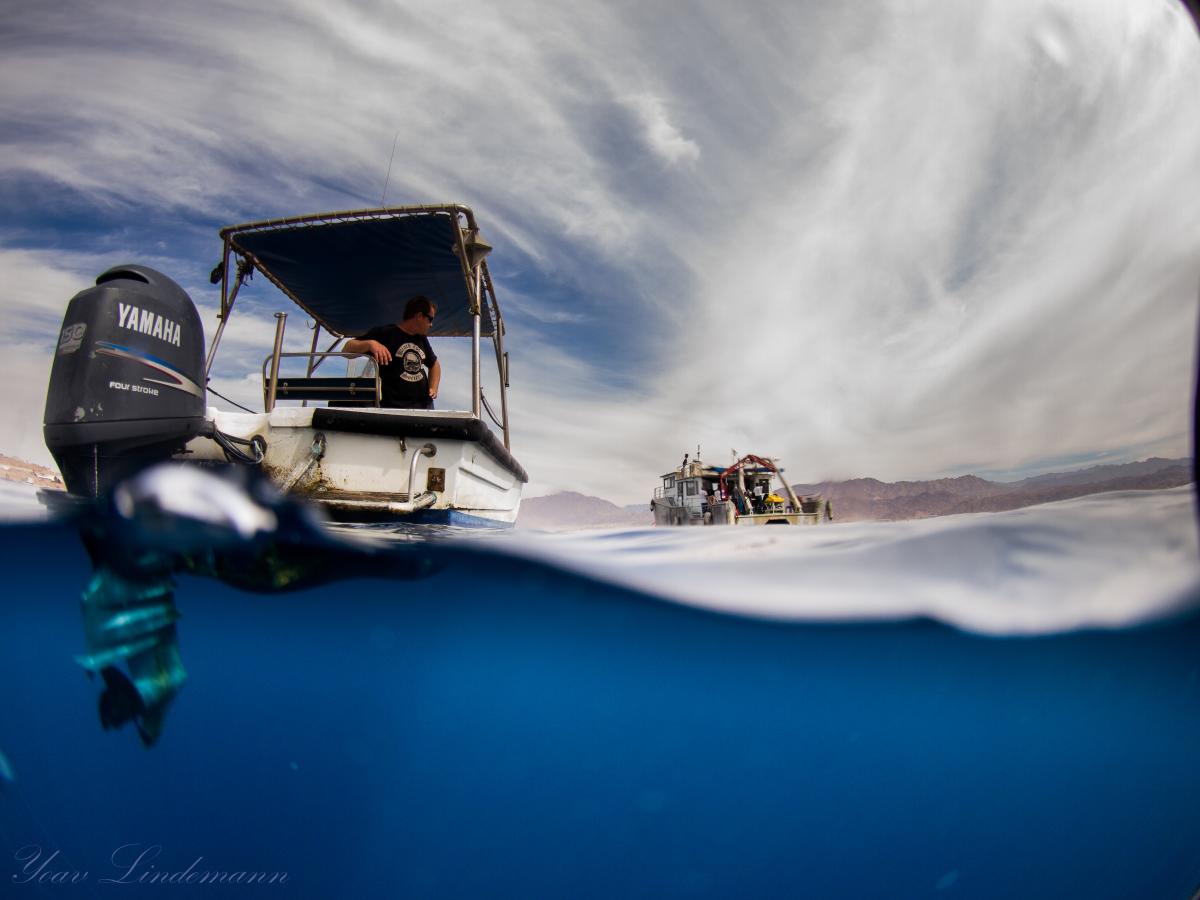While most of the basic science is performed in the lab and allows for interesting discoveries of the biology and chemical ecology of microbial interactions, we are passionate about testing our findings in the real world, in natural populations in the ocean. To measure microbial interactions within algal blooms, we study specific genetic and metabolic biomarkers that are induced during a myriad of interactions. During field campaigns, we detect and measure the biomarkers and couple them with bloom dynamics and environmental parameters, in order to gain a holistic view on the bloom ecosystem.
We are also researching the impact of microbial interactions on ocean-atmosphere feedback. We study the emission of aerosolized pathogens (as viruses and bacteria) and characterize the airborne microbiome across the ocean. For more information, visit the Ocean-Atmosphere Interactions Lab.
Current research projects in the lab:
1) Mesocosm setups to induce algal blooms: we preform mesocosm experiments to track coccolithophore-virus interactions across scales from single cell transcriptomics to metabolic and biogeochemical landscape.
A month-long mesocosm experiment in Bergen, Norway, 2018.
2) Studying diatom bloom dynamic in the Gulf of Aqaba, Red Sea: We develop sensitive gene markers to assess cell fate during diatom bloom and to study the different mortality agents controlling bloom demise. This is a collaborative project with the Frada lab (IUI) and the Krenzler lab (Bar-Ilan university).

3) Oceanographic expeditions as part of the Tara Oceans consortium to study host-pathogen interactions in natural populations and its impact on the marine carbon and sulfur cycle.
A video from our 2022 cruise along the Argentinian coast on the Tara schooner, chasing a huge coccolithophore bloom!

